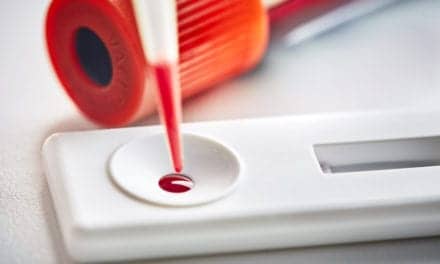Summary: Ad Astra Diagnostics (AAD) received a $5 million federal contract to further develop its QScout CBC diagnostic system, designed to deliver fast, patient-side CBC results and improve early infection detection, including sepsis.
Takeaways:
- AAD’s QScout CBC system is a patient-side diagnostic tool to report critical infection markers like immature granulocytes and neutrophil-to-lymphocyte ratio for earlier infection detection.
- The compact QScout system integrates a computer, microscope, camera, and robotics, providing CBC results in about two minutes from a simple blood sample.
- Funded in part by BARDA, this $5 million contract (with potential to reach $12.6 million) reflects federal support for advancements in rapid, life-saving diagnostics for community settings.
Ad Astra Diagnostics (AAD), a developer of rapid diagnostic and data systems, has been awarded a federal contract of $5 million with potential to award up to $12.6 million for the development of an improved diagnostic system designed to deliver faster complete blood count (CBC) test results and the earlier detection of severe infection, including sepsis.
The QScout CBC Diagnostic System
AAD’s easy-to-use QScout CBC diagnostic system aims to be the most comprehensive patient-side CBC and the first to report immature granulocytes and neutrophil-to-lymphocyte ratio in community settings, such as physician offices, cancer centers, and ambulances, for earlier identification and triage of severe infection.
“Coupling a full CBC with a sepsis risk score on a small, simple and rugged platform expands the market and increases access to on-site critical testing and early identification of severe illness and sepsis to help prevent unnecessary deaths from infection,” says Joy Parr Drach, CEO of AAD. “Every hour matters when it comes to protecting patients with infection, but today there are few tools available to aid early diagnosis before patients arrive in a hospital setting. We are extremely gratified that AAD’s vision for an improved life-saving diagnostic system has received substantial financial support from BARDA, the Biomedical Advanced Research and Development Authority.”
FDA-Cleared CBC System
AAD’s QScout CBC system is being developed as the next generation of the company’s QScout RLD, which earned 510(k) clearance from the U.S. Food and Drug Administration (FDA) after successful field trials when compared to central lab tests. The QScout system has earned 11 patents to date, and QScout RLD development was also funded in part by BARDA, part of the Administration for Strategic Preparedness and Response within the U.S. Department of Health and Human Services, under contract number 75A50121C00089.
Further reading: Ad Astra Diagnostics’ Hematology Analyzer Gets 510(k) Clearance
The QScout CBC system will feature many product enhancements, including a smaller physical size and expanded diagnostic capabilities, including quicker and easier CBC testing. The new system is essentially a “lab in a box” as it contains a computer, microscope, camera, and robotics. To perform a test, all a user does is place blood from a finger stick or venous sample onto a low-cost test cartridge and insert the test into the QScout Lab. No sample preparation is necessary. The system then uses artificial intelligence-trained algorithms to identify cells and cellular parameters and return a test result in about two minutes.
“We are excited to see this important tool funded to help us with the holy grail of testing: get patients to and through the emergency department faster if they need to be there, and keep them out if they don’t,” says Jon Baker, director of laboratories at the University of Michigan Health – Sparrow, one of the locations involved in testing the system.
This new project has been supported in whole or in part with federal funds from the Department of Health and Human Services; Administration for Strategic Preparedness and Response; Biomedical Advanced Research and Development Authority, under contract number 75A50124C00053.





